Safeguard peace as a pathway to wealth, Museveni tells ghetto youth
“Peace is the first and most important thing. Without it, nothing else is possible. No roads, no schools, no hospitals, no jobs,” President Museveni lectured to hundreds.
Museveni reminded Ugandans that while development is a collective responsibility, poverty is personal and must be tackled individually.
KAMPALA - President Yoweri Museveni has called on the ghetto youth in Kampala's suburbs, also known as ghetto, to guard the peace Uganda currently enjoys, describing it as the bedrock of development, service delivery and personal wealth.
Addressing hundreds of youths at Kawempe Mbogo Mosque Playground in Nabukalu Zone, Bwaise II, Kawempe Division, the President on Friday emphasised that peace is not just a political achievement, but a personal investment that benefits every citizen, especially the young people in urban areas.
“Peace is the first and most important thing. Without it, nothing else is possible. No roads, no schools, no hospitals, no jobs,” President Museveni lectured to hundreds.
The President pointed out the infrastructure across Uganda, from rural farms to urban factories, as visible fruits of peace. On a large screen, he displayed videos of ongoing development projects in Kalangala and Kampala to illustrate his point.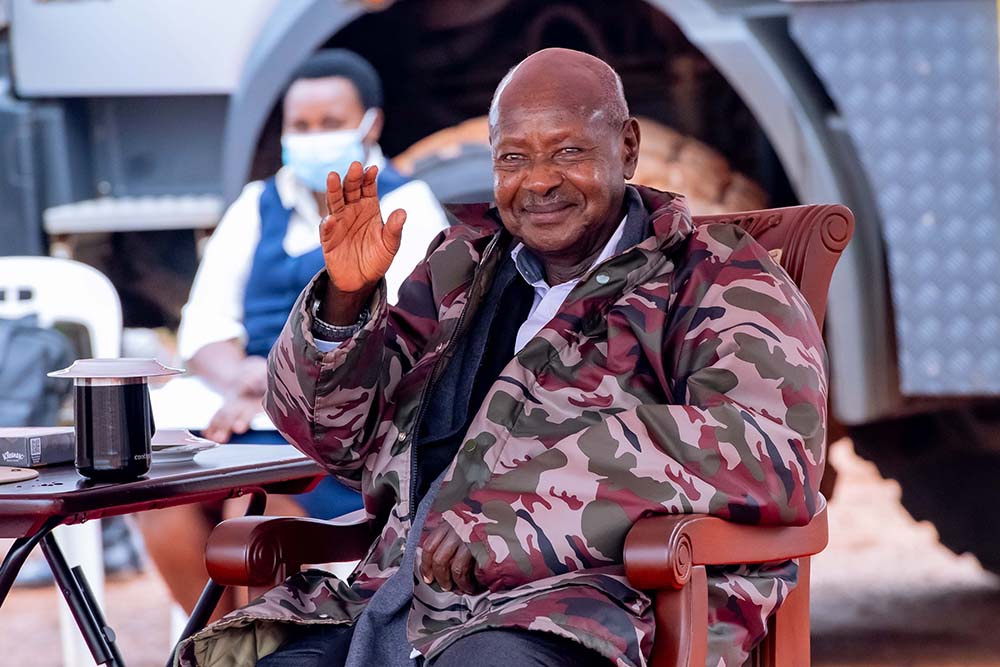
The President revealed that over the past four years, the government has sent over shs10bn to Kawempe through the Parish Development Model (PDM), with shs100m going to each of the 22 parishes every year. (PPU Photos)
“You may say those buildings are not yours, but every bag of cement, every tonne of steel, every nail used in those buildings pays tax. That tax is what we use to immunise your children, build roads, and bring piped water to your homes,” he said.
To demonstrate the long-term value of peace and tax-funded public health, President Museveni invited a woman living with polio to address the gathering.
She confirmed that she was born in 1974.
“Since 1997, no child under the National Resistance Movement government has suffered from polio, thanks to immunisation programs funded by tax revenues. These few that could have gotten it are because their parents did not take them for immunisation. That’s the value of peace,” Museveni explained.
A release from PPU states that he urged the youth to recognise how national progress benefits them personally.
“When you support peace, you are supporting yourself. If you doubt it, go and see countries without peace and see what life is like there,” the President stressed.
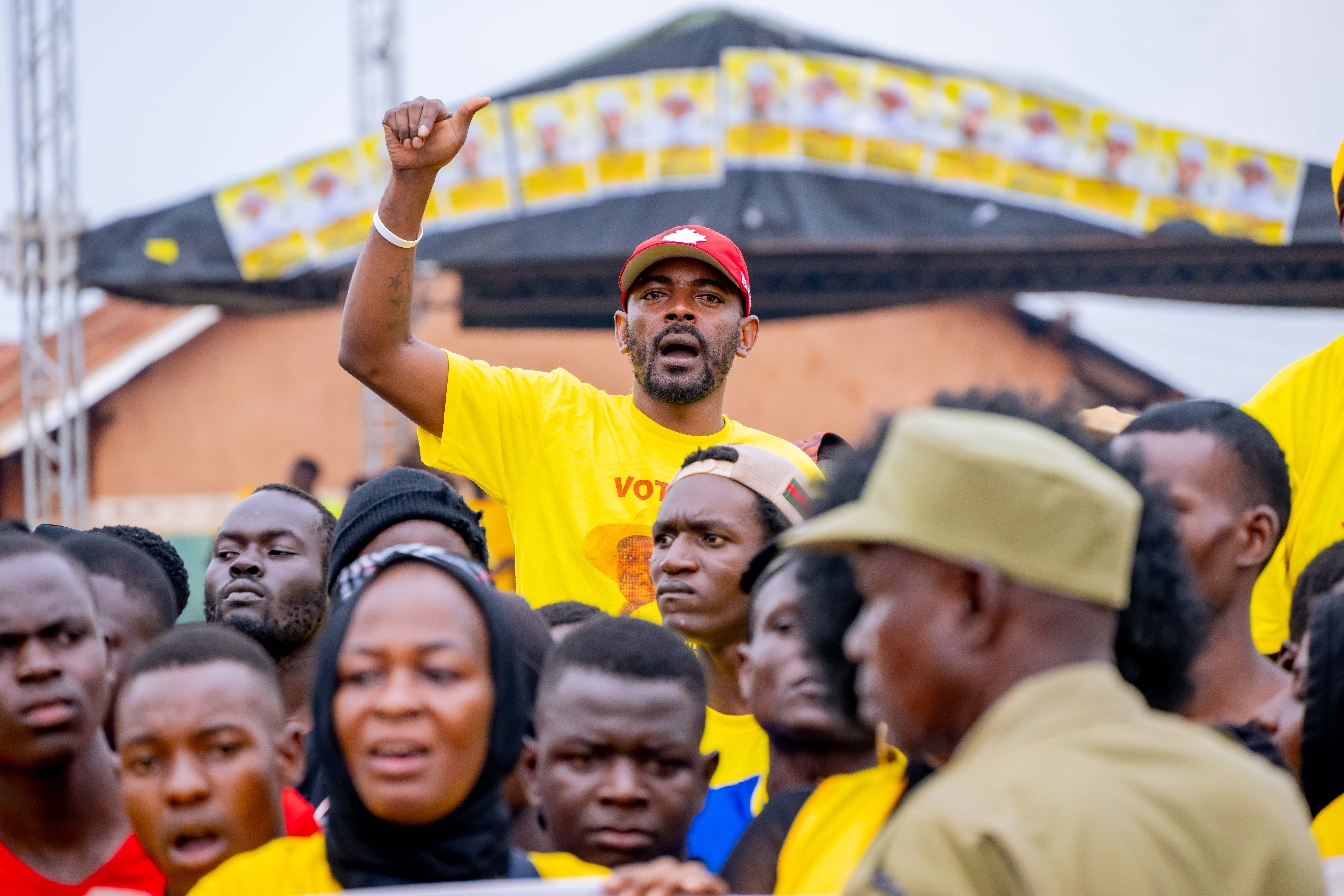
On development and wealth creation, he reminded the crowd that having infrastructure alone is not enough.
“You can have a tarmac road in your area, but at night, you don’t sleep on it; you sleep in your house. If that house is full of problems, then development alone isn’t enough. That’s why, from the beginning, NRM has emphasised wealth at the household level,” he said.
The President also revealed that over the past four years, the government has sent over shs10bn to Kawempe through the Parish Development Model (PDM), with shs100m going to each of the 22 parishes every year.
“Kawempe is not in Congo or South Sudan, it is right here in Kampala. Go to the Town Clerk and ask where the shs10bn has gone,” he said.
The President, therefore, tasked Hajjat Madinah Nsereko, the NRM flag bearer for Kawempe South, and Faridah Nambi, the NRM flag bearer for Kawempe North, to head a follow-up committee to verify how the funds have been utilised.
“I have created a committee led by Madinah and Nambi. I will support them fully. We want transparency,” the President declared.
President Museveni explained that while the PDM cannot reach everyone at once, it is being rolled out in phases, particularly targeting agriculture.
“Each household is supposed to receive shs 1m, and according to the Town Clerk’s report, over 7,000 households in Kawempe have already benefited,” he said.
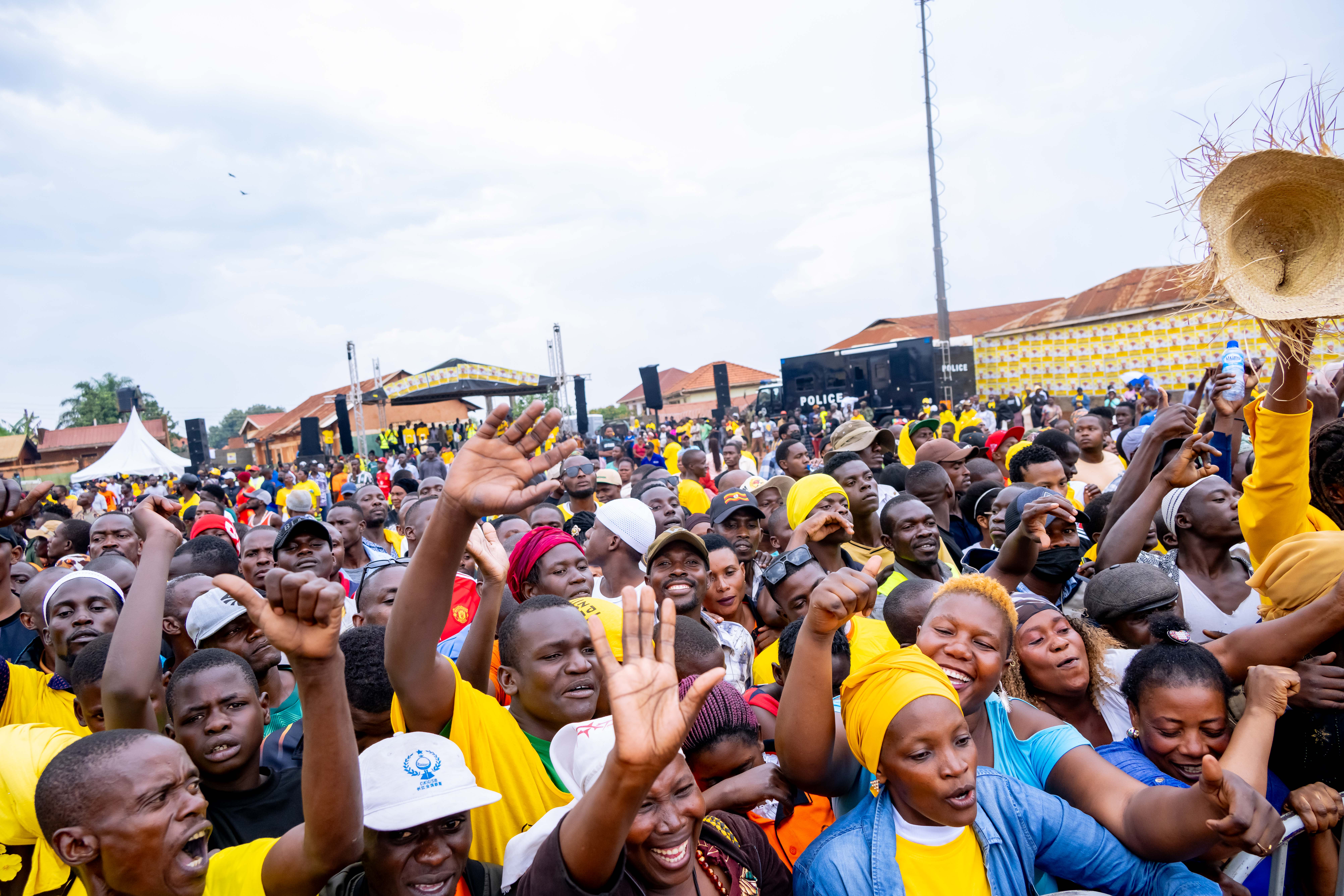
Museveni reminded Ugandans that while development is a collective responsibility, poverty is personal and must be tackled individually.
“You can have a paved road, but if you sit idle beside it, you’ll remain poor. Every household must take advantage of national development to improve their own livelihood,” he warned.
He once again cited the Four-Acre Model, first introduced by the NRM in 1996, as a proven pathway to rural wealth. The model encourages families to grow coffee, fruits, food crops, and pasture on a small plot of land while practising poultry and piggery farming in the backyard.
He identified Mr. Joseph Ijara from Serere, who started with 2.5 acres and now earns over sh800 million annually through poultry farming.
“This is what we mean by waking up. You, too, can do it,” President Museveni told the ghetto youth.
He further acknowledged the role of artisanship, trade, and innovation in urban areas, noting that wealth is not only agricultural.
“Peace, development, services, markets, and wealth are the pillars of transformation. Let us guard them jealously because the future is yours,” he added.
The Minister for Kampala Capital City and Metropolitan Affairs, Hajjat Minsa Kabanda, commended President Museveni for his commitment to uplifting urban communities through the Parish Development Model.
She reported that he 22 parishes in Kawempe are among the beneficiaries.
“The impact is visible. People who had lost hope are now starting small businesses, improving their homes, and sending children to school,” she said.
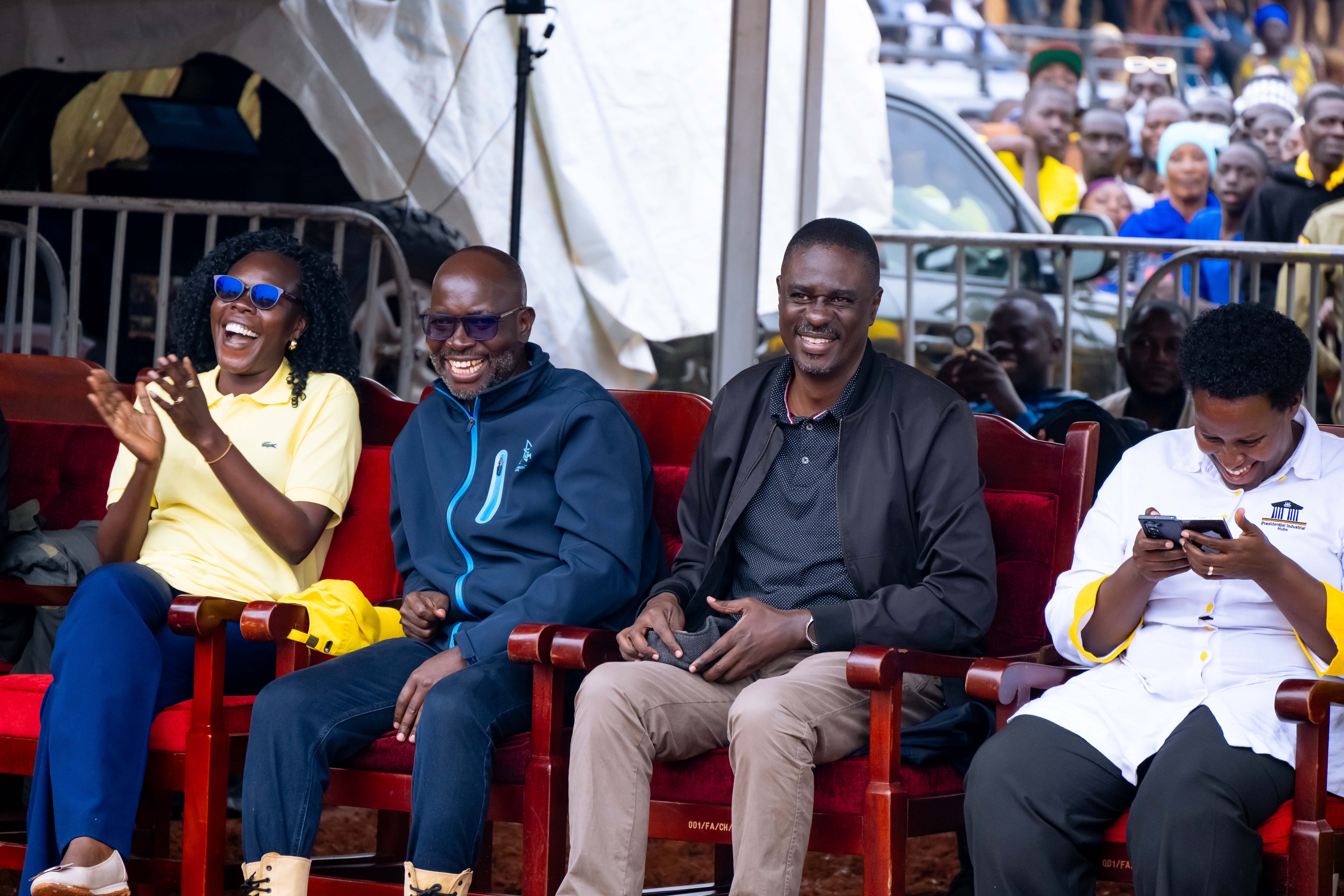
She added that the leadership in Kampala is committed to working with government structures to ensure transparency and effective monitoring of PDM funds.
On her part, Hajjat Madinah Nsereko, the National Resistance Movement flag bearer for Kawempe South, applauded President Museveni for his unwavering support to the youth living in Kampala’s urban ghettos.
She expressed deep gratitude for the President’s visible and lasting interventions in improving the lives of disadvantaged communities.
Delivering an update on the progress of ghetto transformation efforts, Maj. Emma Kuteesa, the Presidential Coordinator for Ghetto Affairs, said over 12 Ghetto SACCOs were structured and registered.
He mentioned that this was a directive given by the President and implemented under the leadership of Gen. Christopher Ddamulira, Director of Crime Intelligence.
“With the oversight of the State House Comptroller, we successfully established 12 SACCOs across Kampala Metropolitan. These SACCOs cover youth from some of the most vulnerable zones, including Kakeeka in Rubaga, Kasangati, Kampala Central, Nakawa, Kawempe, Makindye, Mukono, Kasokoso, Nansana, and Masajja Para Zone,” Maj. Kuteesa reported.
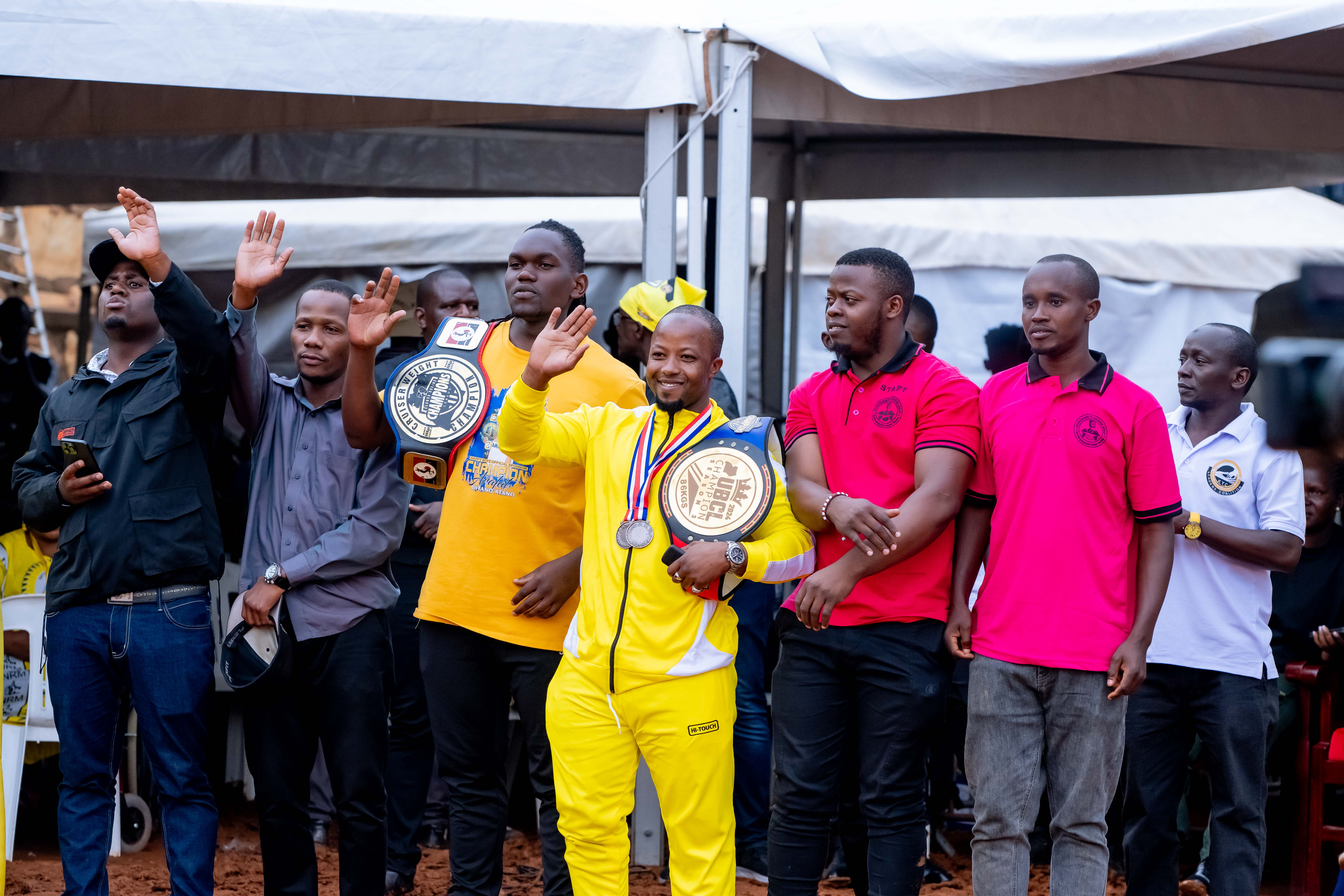
He revealed that President Museveni officially launched the SACCOs at Kololo Independence Grounds in December 2023, and later on July 30, 2024, donated shs1.2b, with each SACCO receiving shs100m.
"The launch at Kololo was a game-changer. From a few hundred members, our ghetto SACCO network has now grown to over 10,000 youth in Kampala Metropolitan, and over 40,000 countrywide,” Maj. Kuteesa reported.
“The injection of funds and organisational support has birthed over 500 small-scale projects and businesses in Kampala, Wakiso, and Mukono.
These ventures range from welding workshops, goat-rearing farms, mushroom growing, to creative industries like music and fashion,” he mentioned.
Maj. Kuteesa noted that the positive impact of these interventions is already evident.
“Crime rates have gone down significantly in the ghetto communities because the youth are now occupied and productive.
Ghetto dwellers are no longer seen as idle or dangerous, but as entrepreneurs, artisans, and agents of development.”
He further praised the involvement of the ghetto youth in national structures and civic participation, particularly within youth councils and community development programs.
Dignitaries at the event included: the Government Chief Whip, Denis Hamson Obua, Evelyne Anite, the Minister of State for Investment and Privatisation, Hajjat Sharifah Buzeki, the Executive Director of Kampala Capital City Authority (KCCA), the Director for Mobilisation at the National Resistance Movement (NRM) Secretariat, Rosemary Nansubuga Sseninde, Ms. Jane Barekye, the State House comptroller, Ms. Hellen Seku, the commissioner of the National Secretariat for Patriotism, among others.